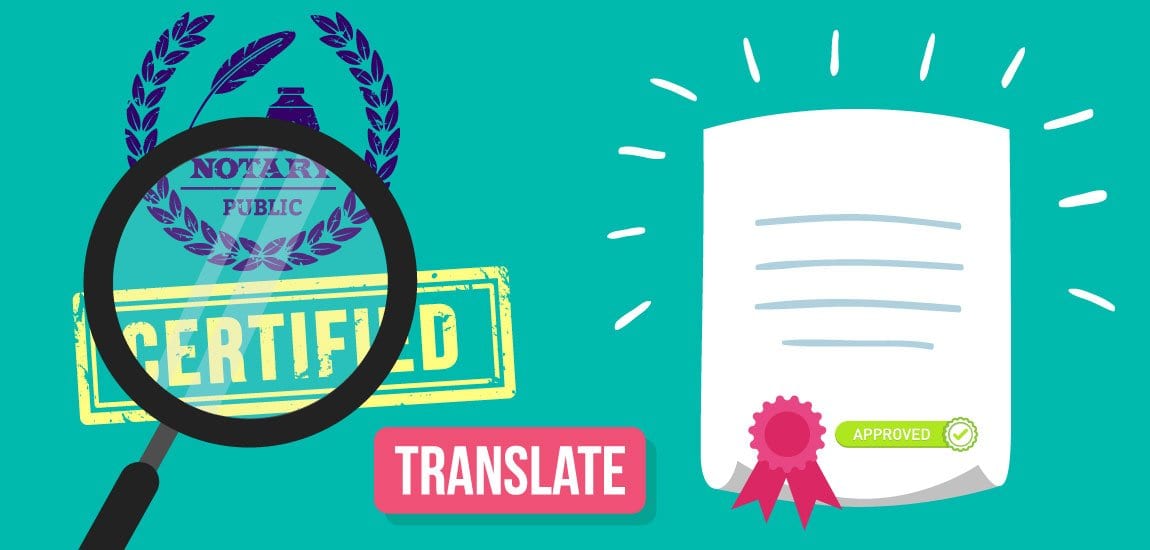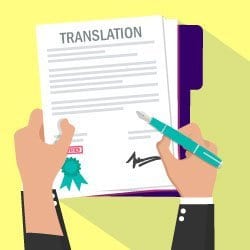
What Is A Non-Certified Translation
Do you ever feel bad about not knowing enough? We are all living in the age of information. However, we cannot consume all the data available on the internet because there are limitations to memory. However, that doesn’t mean we don’t try. Many of us read Wikipedia pages about random things to learn something new. We know that no knowledge will ever go to waste. Even if something isn’t useful to us today, it can be in the future. Sometimes, however, it becomes necessary to learn about some things. If you are applying for university admission, you must study general knowledge to prepare for every type of question.
The World of Translation:
Many people today only know of translations they have seen on social media websites. A translate button under every tweet and Facebook post is not written in the default language. People can click the button and read sometimes accurate and other times hilarious translations. Many of us think that that’s exactly what translation is, but the truth is slightly different. A lot can get lost in the process of translation; experts can still keep it as close to the original as possible. Translation apps power the option on social media websites. They are rarely accurate because of several reasons.
The biggest reason apps can’t offer us accurate solutions is that they don’t consider the cultural context used in languages. They cannot keep the context in mind when translating a statement. This is why native speakers are better suited to the language translation job. They not only understand the cultural aspect but can also understand the emotional value of each word.

Types of Translation:
There are as many types of translation as industries that need linguistic assistance. For instance, business translation and legal translation are completely different things. The professional who is an expert in one cannot handle other types of documents. Everyone working on one type of document must have some knowledge of the field. But all these fields are branches. The translation types differ based on the type of certification they do or do not require.
This is the most in-demand type of linguistic service. It comes with a signed statement from the translator and attests to their work being accurate and complete. People need this type of service whenever they submit a document to a government body. Whenever someone needs this service, they should only go to qualified professionals.
Certified Translation
A certified translation is a document translation accompanied by a signed statement from a qualified translator or translation agency affirming its accuracy and completeness. This formal declaration, often bearing an official seal, verifies that the translation is a true representation of the original document and is commonly required for legal or official purposes. The certification of accuracy is essential when providing regular translation services for academic transcripts or immigration documents, ensuring a faithful rendition of information from the original language to the desired target language.
In the translation process, a translation agency employs professional translators specializing in document translations, ensuring high-quality translations for legal purposes. When handling legal documents such as medical records or official documents, qualified interpreters work diligently to accurately convey the information from the source language to the target language, meeting the stringent requirements of government agencies in foreign countries. This meticulous approach is crucial in legal proceedings, where the precision of the translated content must match the original document, maintaining the integrity of the language pair and upholding the standards of certified translations within the official language of the native country.
Notarized Translation
When the translator has to sign their statement before a notary public, it becomes a notarized translation. This has less to do with accuracy and more with the linguistic expert’s identity. Notary publics are not qualified to judge the quality of a linguistic service. Their only task here is to verify the identity of the signatory.

A lot of times, a translation is not needed for official purposes. The client does not have to show it to the authorities. They either need it for referencing or internal records. In any case, no special stamp of accuracy is needed in such situations. So, there is no need to spend more money to get a certified translation when non-certified can do the job just as easily. However, people unfamiliar with linguistic terminologies may not know the difference between the two. Some might even think that non-certified would mean that the resulting document is inaccurate or does not contain all the necessary information.
If you pick a reliable service provider, the only difference between the two types will be a signed statement. In non-certified translations, the linguistic expert does not have to sign a statement to prove their work is accurate. They can finish the task and hand it over to the client. The absence of a statement does not mean that the work quality is not high. It just means that the service is not needed for official purposes.
To meet certification requirements for official translations, a reliable translation provider employs experienced translators who specialize in accurate translation of common documents and technical documents from foreign language to native language. This expertise extends to academic translations, including the precise translation of diplomas, catering to the needs of language professionals in notarized translation processes.
People save money by opting for this type when there is no need for a signed statement. It also saves the translators’ time who do not have to attach a statement with every file they handle. This type of translation can be used in business and courts when the files are only needed for internal records. But whenever there is an official record in question, or the file has to be presented to the court or some other government department, the translation should come with the signed statement, or it will not be considered accurate.
Often, people end up trusting the company that wants their money. But in truth, not everyone is out for your money. It does sound unbelievable that in a capitalist society, there are companies that care about the interests of people, but there are a few exceptions everywhere in the world. If you go to the right agency with your linguistic problem, they can guide you about the required service. They will also help you save money by providing quality assistance at affordable rates. You can get help from an agency that genuinely cares about its clients.


Sorry, the comment form is closed at this time.